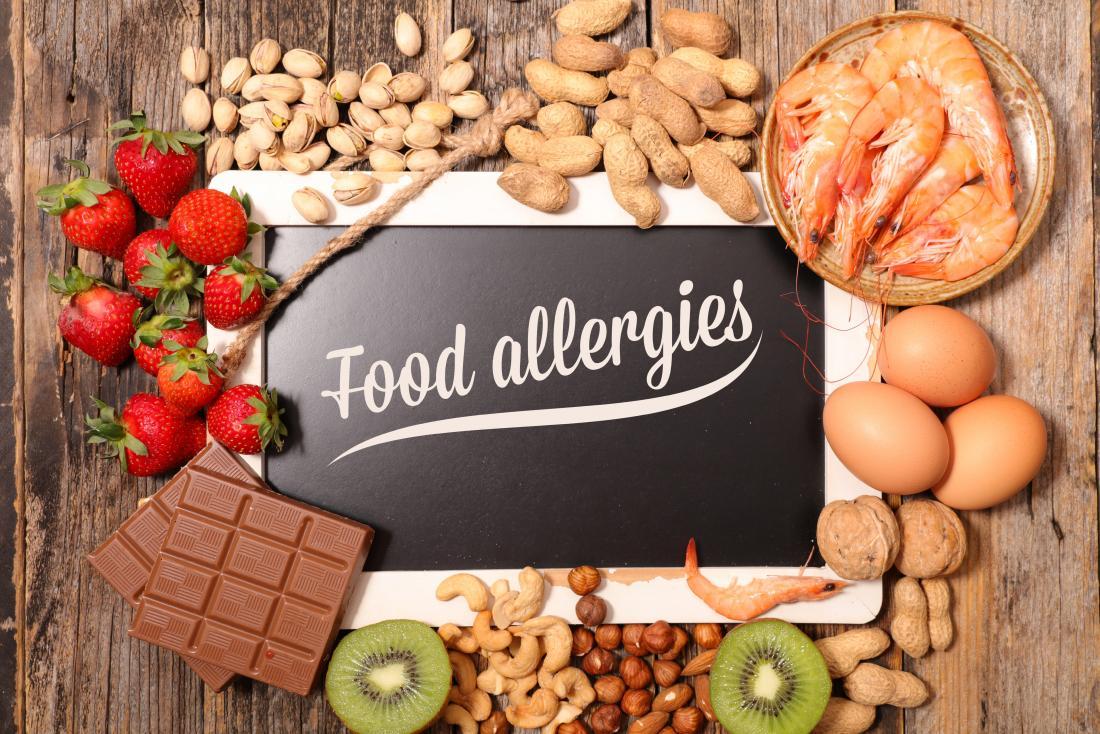Allergies are among the first reasons for visiting the doctor. It is a reaction of our body's immune system to an allergen such as pollen, mold, animal hair, certain materials such as latex, insect bites and certain foods and medicines.
An allergic reaction can affect the nose, lungs, throat, sinuses, digestive system, or skin. It can cause various symptoms such as runny nose, sneezing, itching, watery and burning eyes, redness or irritation on the skin, shortness of breath, swelling or asthma ... These symptoms can range from minor to severe and depend largely on the allergen.
There are several ways to treat and prevent allergies. Certain foods are also of great help in preventing allergic reactions. We show you some tips to follow regarding food to better manage these painful passages!
1- Apples
An apple a day can strengthen your immune system and prevent allergies. Packed with quercetin, a flavonoid that effectively protects against allergic reactions, it stabilizes the membranes of mast cells and basophilic granulocytes, which prevent the release of excess histamine in your body.
Eat an apple a day, as a snack, with oatmeal or in a fruit salad. A glass of apple juice is also a good option.
2- Turmeric
Turmeric is a powerful weapon to prevent allergies. It contains antioxidant and anti-inflammatory compounds that fight allergies and acts as a decongestant. Convenient when your nose is blocked!
To consume it daily, you can mix a small spoon of turmeric powder in a glass of hot milk, to drink once a day. Besides that, use it as much as possible in your dishes.
3- Garlic
Garlic has the power to neutralize the activity of enzymes responsible for inflammation in the body and prevent allergic reactions. In addition to its anti-inflammatory properties, garlic has antibiotic and antioxidant properties that boost the immune system.
Eat one or two crushed raw garlic cloves each day to help fight allergies.
4- Lemon
Lemon is a great way to boost your immune system. It is packed with vitamin C and antioxidants. It also has anti-toxin and anti-acid properties.
Drink lemon juice throughout the day to detoxify the body and help it get rid of impurities. You can also mix lemon juice with olive oil and season it for salads and sandwiches.
5- Salmon
Salmon is a cold-water fish rich in omega-3 fatty acids that effectively fight inflammation and allergies and reduce the severity of symptoms like asthma and nasal congestion.
Eat a minimum of one serving of salmon per week throughout the year. Besides salmon, you can include mackerel, trout, herring and sardines in your diet.
6. Green tea
People with allergies should include green tea in their diet to boost their immune system and thereby prevent allergic reactions.
A 2002 study at Kyushu University in Japan concluded that one of the compounds in green tea can block a key receptor in triggering an allergic response. Green tea also has antioxidant, anti-inflammatory and antihistamine properties.
Drink two cups of green tea (sugar free!) Per day and to increase its effects tenfold, add lemon.
7- Sweet potato
Sweet potatoes are the most concentrated form of beta-carotene, ahead of carrots! They also contain potassium, manganese and vitamin B6 which cure inflammations, vitamin C which strengthens the immune system and decreases the production of histamines, as well as proteins with antioxidant properties.
8- Ginger
Packed with anti-inflammatories and antioxidants, ginger is also an anti-allergenic food. In fact, it is even more effective than drugs at stopping inflammation. It neutralizes the contraction of the airways and stimulates the secretion of mucus, which prevents and eases the symptoms of asthma.
Drink two cups of ginger tea a day. Adding a slice of ginger root daily to your meals or drinks also guarantees good health.
9- Green cabbage
Regular consumption of kale can prevent allergic reactions thanks to the carotenoids it contains, which are known to relieve symptoms. In addition, kale is a good source of vitamin C and other nutrients that boost the immune system.
Buy them dark in color because they are the richest in carotenoids. To get the most out of its anti-allergenic properties, cook them over low heat in olive oil.
Note: green cabbage is rich in vitamin K, so people taking blood thinners should avoid it.
10- Flax seeds
Flax seeds, which contain selenium and omega-3 fatty acids, can prevent allergic reactions. Fatty acids prevent and relieve symptoms by reducing inflammation, while selenium helps the immune system to stimulate the action of antioxidants.
Add a teaspoon of flaxseed to a glass of hot water or milk and drink it once a day. Flax seeds can also be tasted sprinkled on cereals, salad, yogurt, or any other dish.
If unlike allergens like pollen, or animal hair, you're not sure what triggers your allergic reactions, here are some ways to reduce the symptoms.
Keep a journal to determine which allergens are affecting you.
Limit outdoor stays between 5 a.m. and 10 a.m. in hot, dry weather. This is when there is the most pollen in the air.
- Wash your face and hands properly after going outside to get rid of the pollen.
- Take a bath and wash your hair before bed.
- Avoid contact with pets.
- Wear sunglasses to protect your eyes from pollen.
- Leave the shoes at the door to decrease the amount of pollen in the house.
- Close all windows and skylights during the allergy season.
- Use a humidifier to adjust the humidity in your interior.
- Do not stay in places with low humidity.
- Avoid sitting near a place where the grass has been freshly mowed.
- Dry clothes in a tumble dryer rather than in the open air.


